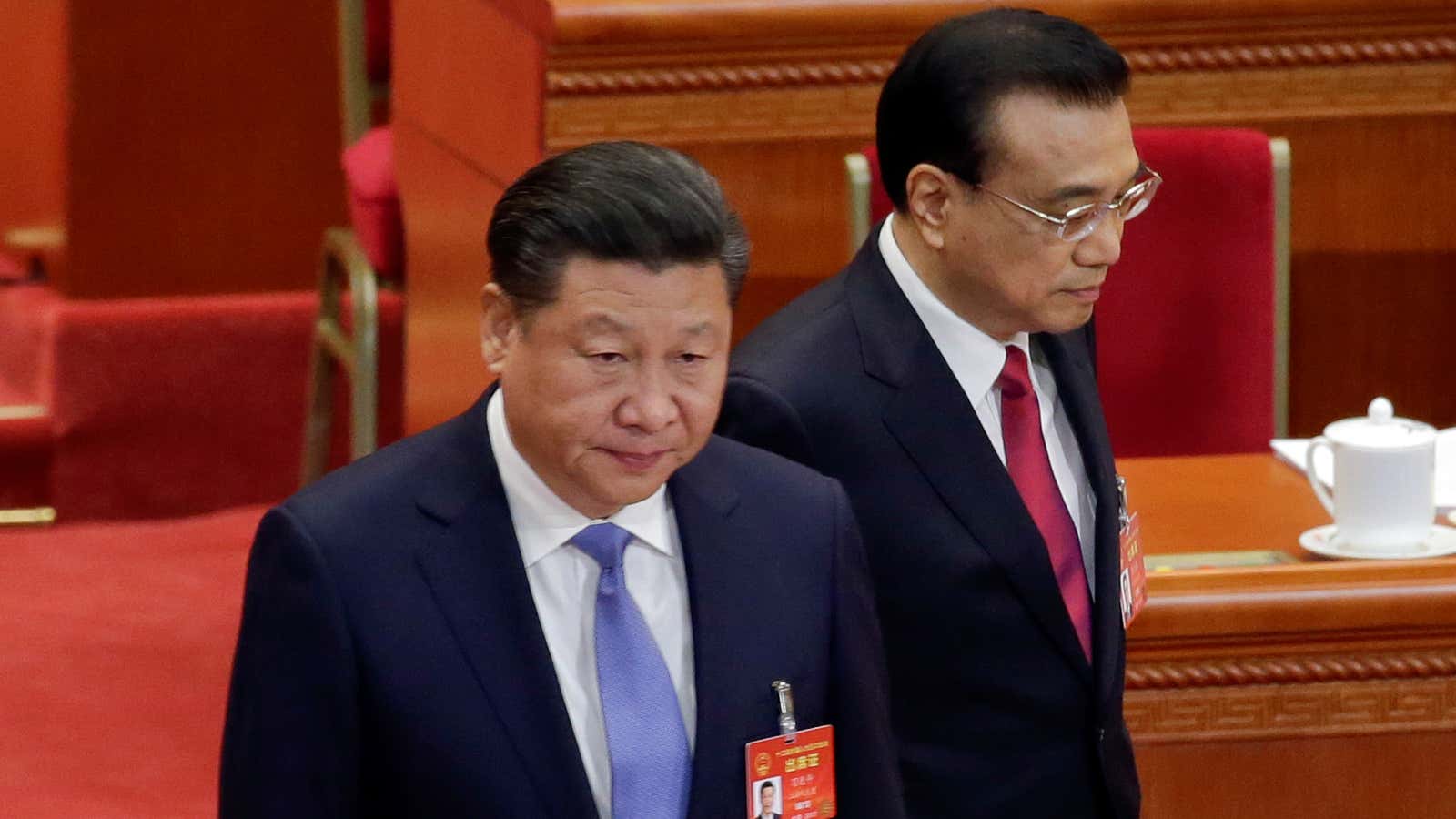The Chinese government has announced its annual GDP target for 2017, projecting growth of “around 6.5%, or higher if possible in practice.” Though somewhat lower than 2016’s target, it’s still pretty high: The authorities want to keep growth bumping in advance of October’s party congress, a crucial opportunity for Xi Jinping, chair of the communist party, to consolidate power.
One thing that stands out, however, is the Chinese government’s new attention to globalization. Past “government work reports”—as this annual speech is called—have noted the global economy’s sluggish recovery (pdf, p.9) and slowing trade (pdf, p.16) as potential threats to growth. And their remarks about international trade were mainly focused on regional development.
This year’s speech (pdf, p.12) featured a new emphasis. “The deglobalization trend and protectionism are growing,” said premier Li Keqiang (the second-in-command usually delivers the speech). Li proceeded to devote an entire section to the theme:
Economic globalization is in the fundamental interests of all countries. China will not shift in its commitment to promoting global economic cooperation, will uphold the multilateral trading regime as the main channel of international trade, and will play an active part in multilateral trade negotiations.
“China is a responsible country,” Li added. “We have always striven to honor the commitments we have made, and we will firmly defend our due rights and interests.”
Later, during his closing remarks, the premier vowed to “steer economic globalization to see it become more inclusive, mutually beneficial, and equitable.”
This globalization boosterism has become something of a hobby horse for Li’s boss Xi—particularly since the election of US president Donald Trump. At the World Economic Forum in January, Xi presented China as globalization’s champion. Last month, he declared that China should lead in creating a “new world order.”
Certainly, the world needs such a hegemon to lead countries in remaking the global system of trade and capital. But China will struggle to make good on this ambition. As we’ve written in more detail in the past, China suppresses its consumption, making it buy less from its trade partners than it should. As a result of China’s huge trade surpluses, other countries must run deficits—meaning they must borrow more and more to purchase Chinese goods.
These dangerous and destabilizing imbalances are the precise cause of all that “sluggish” global growth and “deglobalization” that China’s annual work report laments. And, therefore, the nationalist movements in the US and Europe that are clearing out the competition for leader of the world order, new or otherwise.
